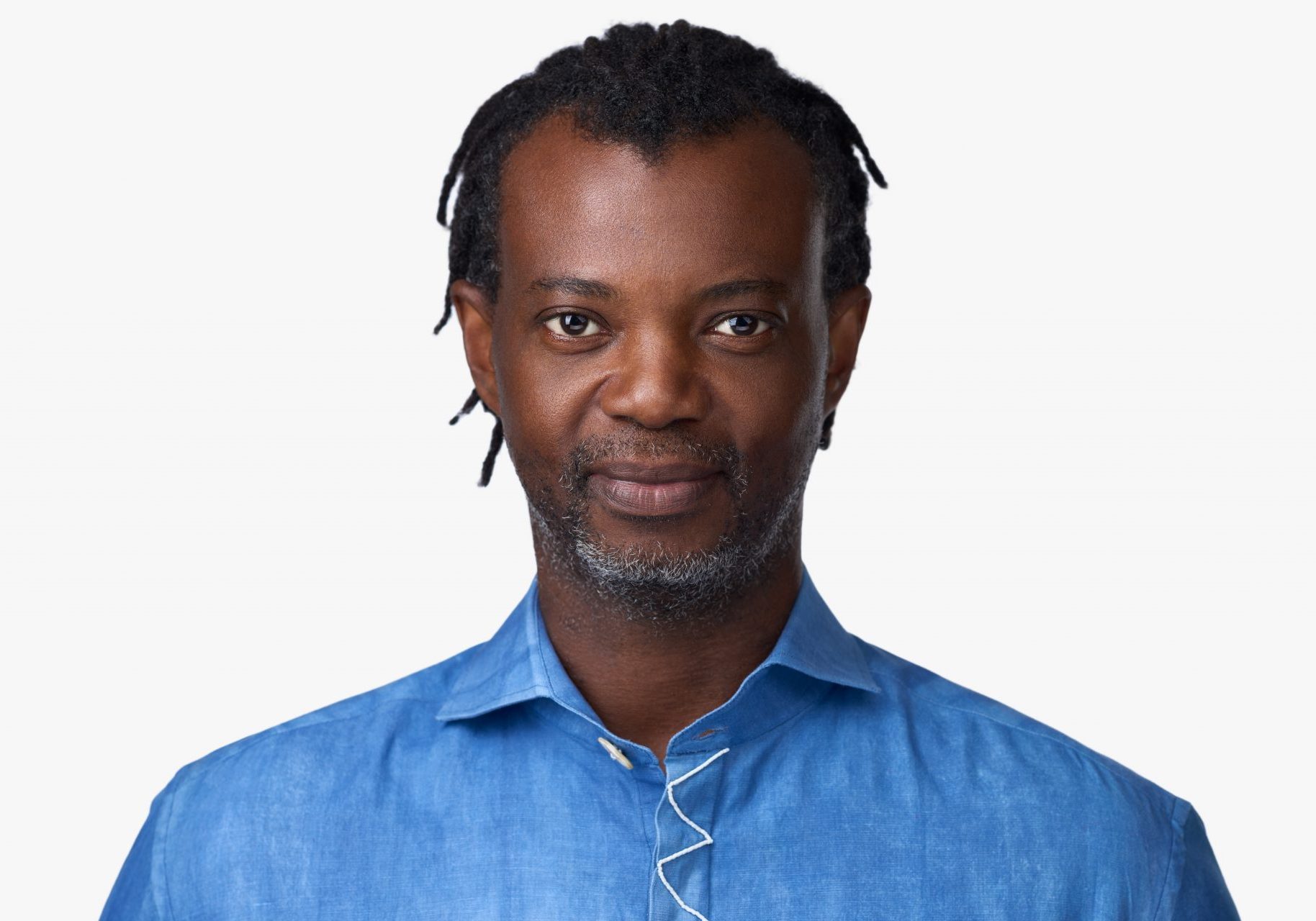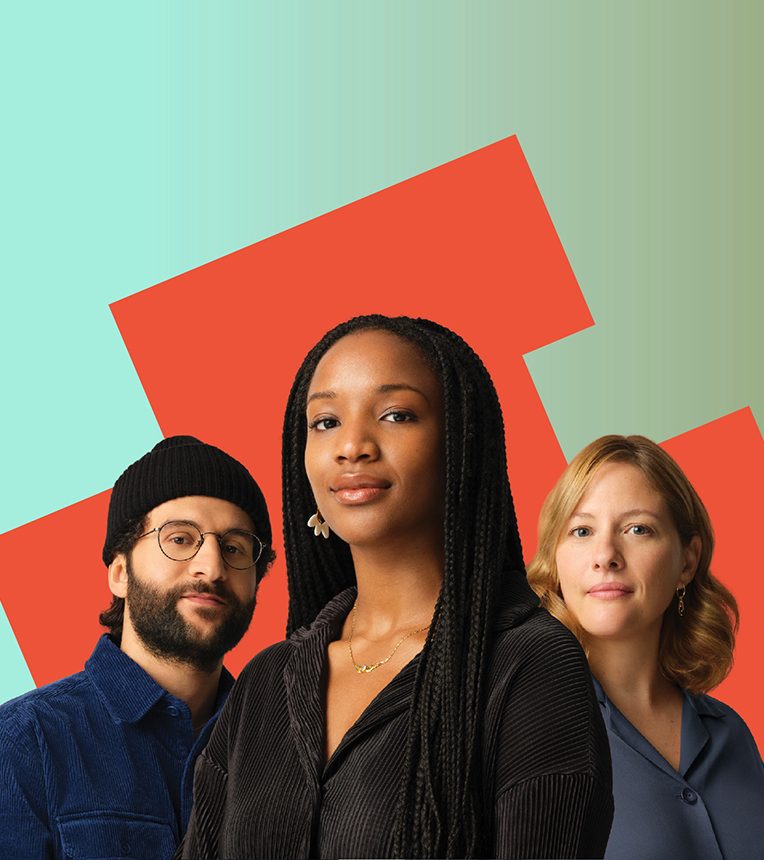Karim Djinko is responsible for partnerships and network development for the Factry’s new Creative Canada program. He has spent part of his career in the high-velocity media world. A former journalist at Radio-Canada, among others, and then head of the United Nations radio station in Bamako, he became a professional coach and co-founded the firm sp2 coaching. Karim Djinko is therefore particularly well placed to testify to the importance of developing soft skills when working in a radically changing environment.
You were hired by the Factry for Creative Canada, a training program for francophones newcomers that helps develop “future skills”-that is, qualities that have become essential for navigating the Canadian job market. What is your role in the project?
Creative Canada was designed in Quebec by Factry, but it is a pan-Canadian program, designed to be transposed in all provinces. It’s not a ready-made program: we work in partnership with provincial organizations so that they take ownership not only of the logistical aspect of the training, but also of the recruitment of the different cohorts. We want to adapt the program to the particularities of each province.
So I am building relationships with local actors and I am also looking for facilitators and trainers from the targeted territories. We live in the same country, but each province has its own particularities, the needs of each province are not always the same, and neither are the realities of immigrants across the country.
I am also in contact with companies that have a lot of newcomers in their ranks to make this program their tool and even consider enrolling their employees in private cohorts.
You are a strong advocate of the usefulness of soft skills like those taught in the Creative Canada program (communication, collaboration, problem solving, adaptability, creativity and innovation). Why do you think this is so?
Traditional institutions teach technical expertise, but very few soft skills. But these are the ones we see first. For newcomers, this is doubly important.
Often, in interviews, people are so stressed to show that they are competent that they forget to show that they are human beings who can integrate into a work environment. In the end, yes, we hire a person for his or her technical skills, but above all, we hire a human being with whom we will have to deal on a daily basis and who will have to fit in as well as possible with a group dynamic.
Soft skills allow you to work on your self-confidence-to improve your communication with others, to feel capable of solving problems that you have never had to face before by bringing together new energies, etc.
I often say that these are not soft skills, but power skills – superpowers that ultimately allow us to showcase who we are, what we can do, and how we can work with others.
Among the skills that Canada Creative focuses on, are there any that appeal to you more than others?
One of the things that motivates me to work on this project is that I know from my own experience that if I had been able to work on these skills on day 1 of my immigration, if I had had access to this training, I would have gone even further, faster.
The skills of the future are interrelated, but I would say that, for me, communication is an important key, which opens many doors.
Also, one of the central ingredients of the program is the opportunity to network [part of the 60-hour course is in person] and learn how to do that in our new context. You may have a great network where you came from, but here you have to do it all over again. Where do you start? That’s one of the most disorienting things about the immigration process.
After that, when you approach people, you have to know how to communicate with them. You have to introduce yourself, you have to understand how they understand things, and you have to be able to adapt.
What does adaptability mean to you?
It means constantly reviewing what we are doing in light of the reality we are experiencing. Re-evaluate to adjust. Re-evaluate to improve. It is a quality of awakening. It means not resting on one’s laurels, it means being attentive to one’s environment… Whether in our interpersonal relationships or in our work projects, everything is constantly evolving and we must remain attentive.
Would you say that, in order to move forward, it is not so much a matter of going fast as of being constantly on the move?
Yes, I would. When things are going well, when you feel like you’ve found a comfort zone, you can have the very human reflex to say to yourself: this is it, I can take a break. But you have to stay alert.
In a constantly changing environment, what was valid yesterday may not be valid today. It’s better to avoid ready-made recipes.
This means that we must also know how to live with the consequences if what we try does not produce the expected result. If you don’t try anything, you’ll never go wrong, but you’ll be depriving yourself of a world of possibilities. You have to give yourself the possibility to fail, that’s how you move forward.
You come from the media world and, as a coach, you have specialized in this sector. As we know, the Internet and new information technologies have turned the business model upside down and are forcing the entire industry to reinvent itself. Is the media universe a good microcosm to study the speed with which we can be led to transform ourselves?
The media is a microcosm for understanding not only the profound transformation of work processes, the impact of technologies, but also the need to adapt.
I worked as a journalist when we still faxed our reports, often handwritten, and they were transcribed by secretaries… Today, in addition to typing our own texts, we can sometimes even put them directly online. In the same way, for the same story, there was the radio guy, the TV girl, the writing guy, with each one having his own cameraman, technician, etc. Today, if you’re a radio journalist, you’re also asked to do a TV segment and a text for the website. This means developing new skills. Journalists have had to adapt to different media.
An additional challenge is to produce reports on events that are now broadcast live. And so you have to find a way to add real value to what you do if you want to capture people’s attention.
And we are talking about transformations that have occurred in just 15 years…
You can see it as new constraints, but, globally, technologies have represented a very big advance for the media. The current context forces everyone to be more creative. It’s not always easy, but it’s exciting.
Socially, perfectionism is seen as a quality, while impatience is seen as a flaw. But when we talk about innovation and creativity, do we need to reverse these perceptions?
In English, we say “think, but don’t overthink”. There is a time to think and refine, and there is a time to launch. We need to develop our ability to take the plunge without the assurance of hitting the bull’s-eye on the first try.
When you immigrate away from your family and society, you have to make major decisions on your own, sometimes for the first time in your life. Creative Canada helps you to take charge.
To use the example of the media world, when you work in the news and your story is scheduled for the 5:00 p.m. newscast, you don’t ask yourself if you’re going to be ready: you have to be ready. At some point, you dive in, you have no choice.
When you’re an entrepreneur or self-employed, on the other hand, your business is you. So we can tend to say to ourselves: if I fail, it’s me, it’s my company that fails. But in the cinema, we like characters who have flaws, it humanizes them.
It’s like developing self-confidence: you have to know yourself and know what you’re worth. You shouldn’t overplay your achievements, just as you shouldn’t overplay your failures.
We’re at the Factry, so we’re looking at creativity more broadly: personally, do you have a surefire trick or ritual for getting yourself back into a creative frame of mind even in the hustle and bustle of daily life?
Every day I take a moment to evaluate what I’m working on, how it’s going, and what I could be doing differently.
I often ask the managers I coach to show me their agenda. Most of them are busy with a multitude of meetings, all day long. I ask them: when do you think?
When you are doing, you are not always thinking. It is however by this work of hindsight and projection that we are able to think outside the box. It’s a mindset that needs to be cultivated and practiced to become an automatic mechanism.
How can the Creative Canada program help individuals take this step back?
Creative Canada is a space to settle down. When you’re a newcomer, you generally have to get into action very quickly to recreate your network, find a job, housing, etc. But you can’t spend a whole day in the same place. But you can’t go from one society to another thinking that it will go like clockwork: there are connections that are flexible and natural, and there are others that require adjustment and reflection.
If you never take the necessary step back, you can get caught up in a spiral. When you fall and get up again without trying to understand why you fell, you risk making the same mistake again. If you’re in Canada and things aren’t working out the way you want them to in the job market, you have to take the time to ask yourself what you need to do differently, where you can adjust, what other skills you can mobilize…
To get off to the best possible start, you have to settle down.


